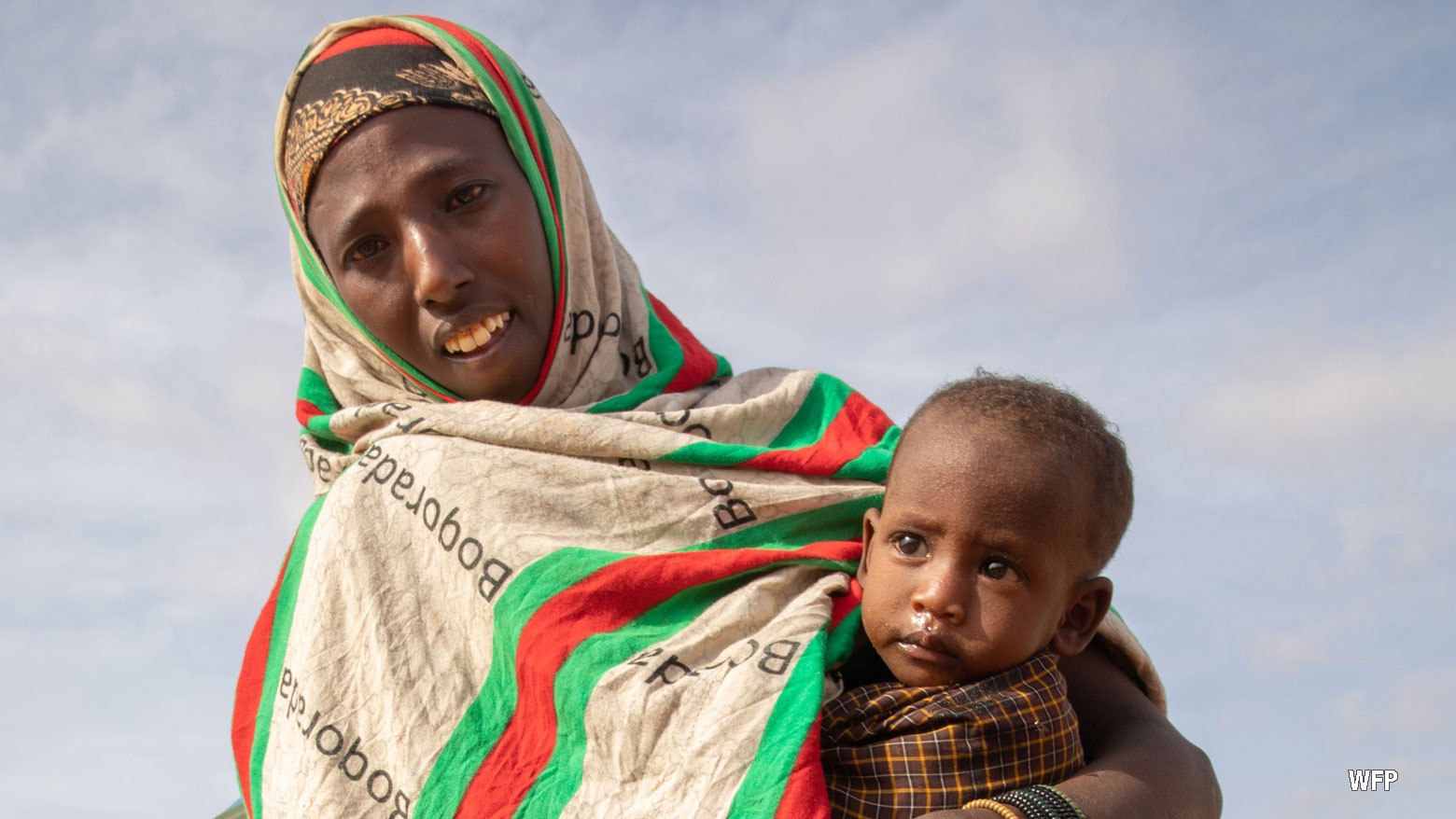Drought causes food shortages
People in the Horn of Africa are praying for rain. Almost 6.7 million are facing extreme food insecurity and the global community is being urged to act now to save lives.
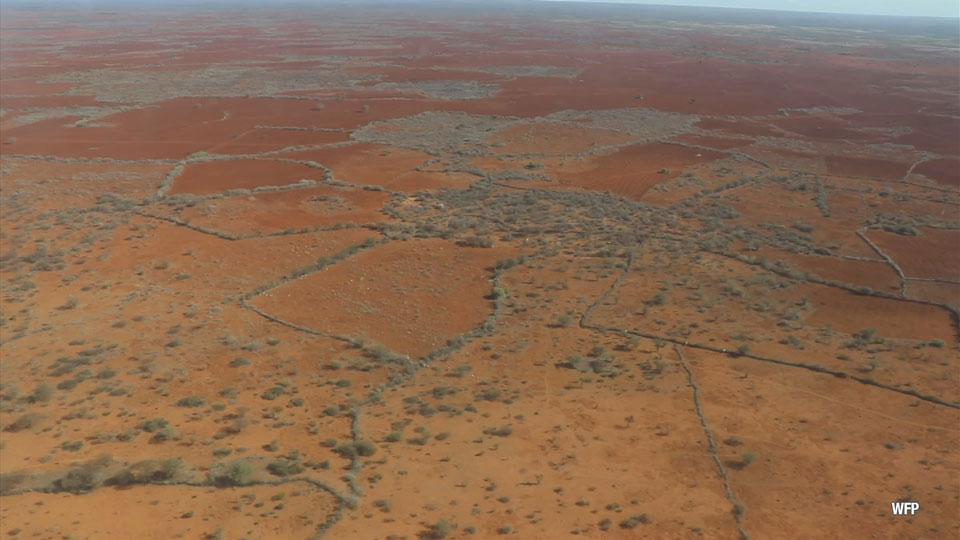
"Somalia is on the frontlines of suffering the impact of climate change," says the country's WFP spokesperson, Petroc Wilton. He explains that while Somalia is no stranger to drought, the country has never experienced anything like as severe as is happening now. The forecast is for a fifth consecutive rainy season without enough rain. Crops are failing, livestock are dying, and millions of people are facing starvation.
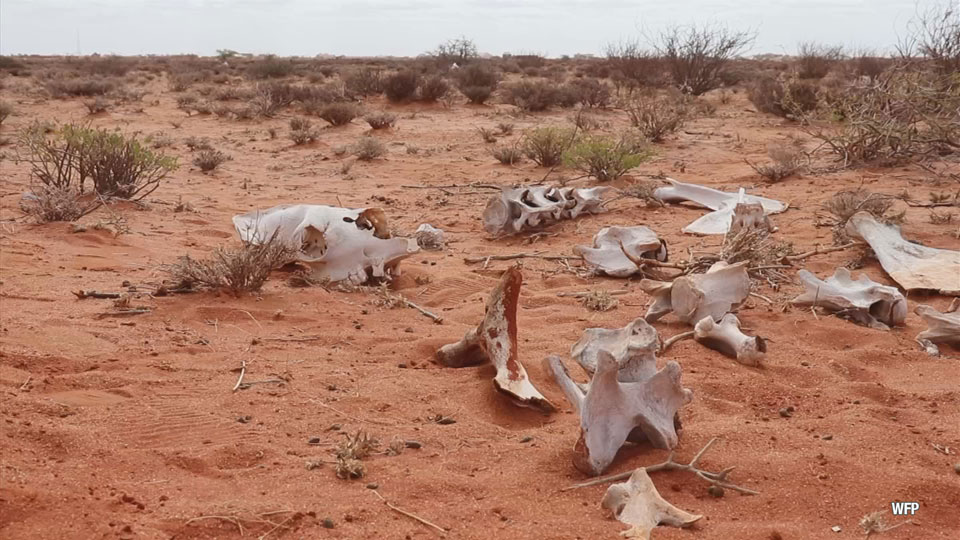
The last famine in Somalia was during 2011-2012. More than 250,000 people died, half of whom passed away before the famine was officially declared. Wilton worries that a similar situation is happening again.
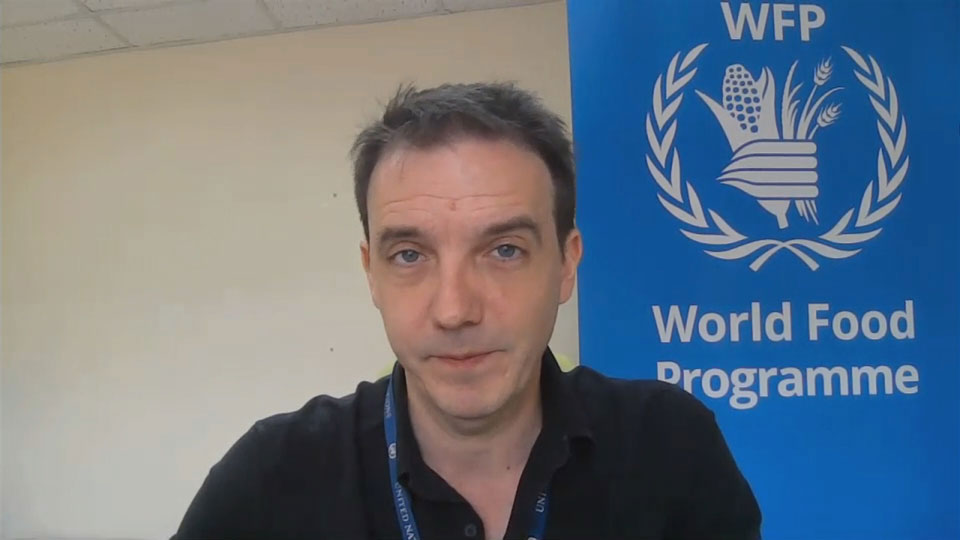
"What we saw happen in 2011 was that famine was again declared in only a few regions, but then it spread rapidly to more regions in the country," he says. "It's critically important to act now before the declaration of famine, because if not, thousands, many thousands of people, could die, and famine could spread to more areas of the country."
Children are most at risk. According to UNICEF, more than 700 died at relief centers during the first half of this year. The WFP is predicting that almost two million could suffer acute malnutrition by July next year.
"When you go to a stabilization center where the most severely malnourished children are being treated, it's absolutely heartbreaking," says Wilton. "They're not even strong enough to cry. You can see bones beneath their skin. It is tragic."
Displaced people at risk
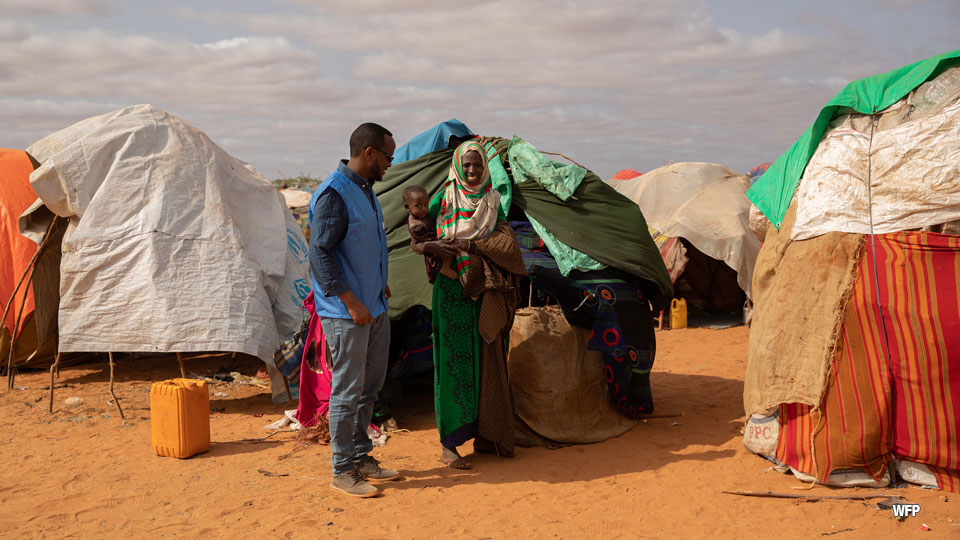
Many Somalis are being forced to move out of their homes as they search for food and water. A WFP case study shows internally displaced people are arriving in the city of Dolow in increasing numbers -- currently around 100 to 150 per week.
The study features Mido, a 25-year-old mother of four who is staying at the Kabasa IDP camp in Dolow. "We left our home because we had nothing left -- we just had drought and hunger," she says.
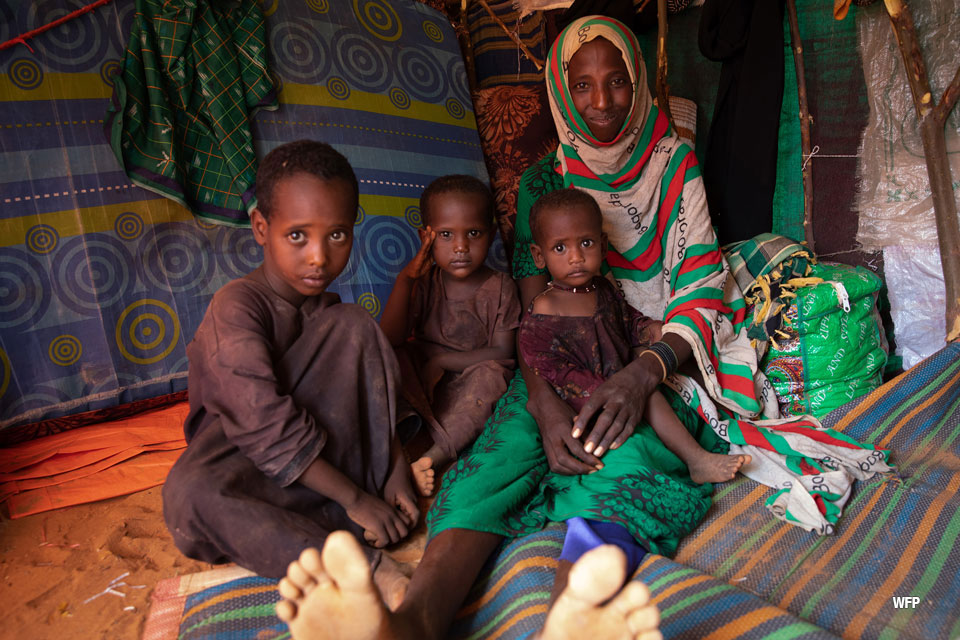
She left home with five children, but a son, aged five, died during the month-long journey. Her surviving children are aged one, three, four and seven. Mido's husband was sick and unable to travel.
She left everything behind, walking barefoot to get to the camp. "It was hard when I lost my son," she says. "The other children are OK but they are still very hungry. I have come to the clinic because a community health worker came and met with us new arrivals and referred us as (my youngest child) Fatun is malnourished."
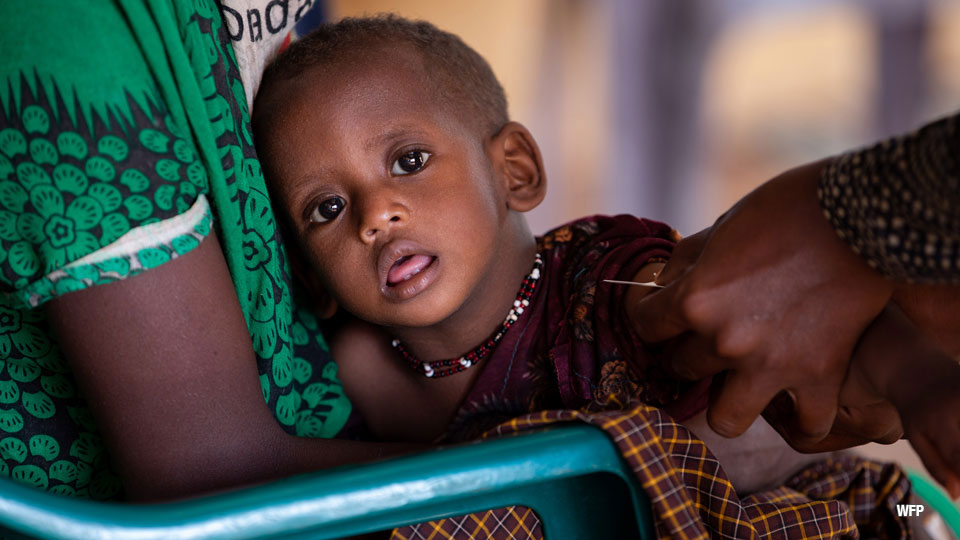
Millions need support
The WFP reports that it helped 4.4 million people in Somalia with life-saving food assistance during October, the most ever for a single month. The number of people asking for food has doubled since April, but Wilton says millions more are still in need.
"There are 4.3 million people experiencing critical hunger. That is almost a third of the population, so that number is totally unacceptable. There is still much more to be done in Somalia," he explains.
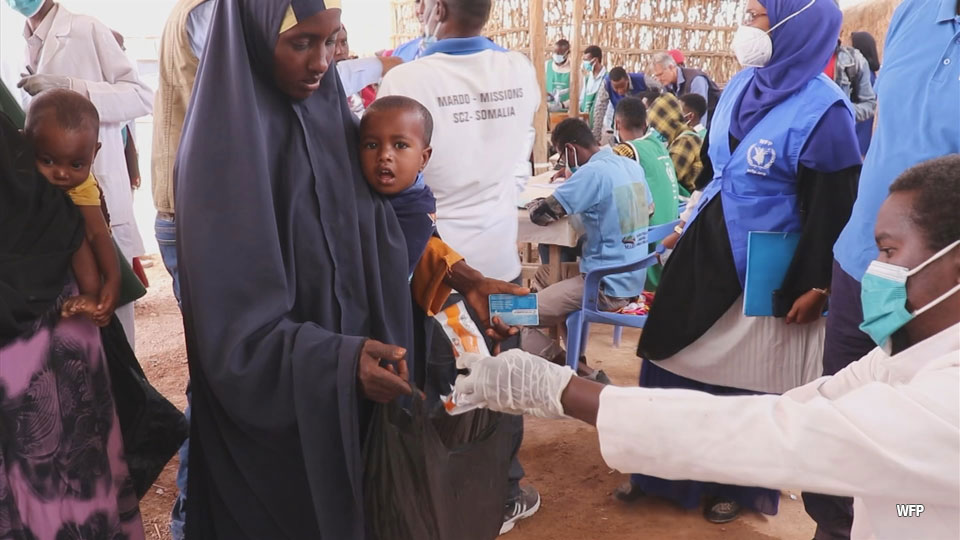
In addition to the effects of climate change, Wilton says the global food crisis is hitting Somalia hard. The country relies heavily on wheat exports from Russia and Ukraine, and the conflict between those two countries has cut off supplies. Coupled with the rising cost of fuel and shipping, Somalia simply cannot afford to feed its people.
The Japanese government has provided $6.5 million to the WFP this year for assistance to Somalia. But Wilton says Japan, and the other G7 nations, need to do more to prevent a catastrophic loss of life.
"We need the funding from the world to sustain that scale up, and increase it to stop the worst from happening. This is the final warning to please help Somalia, because if we don't, it will be too late very soon," he warns.
The UN forecasts that famine may be declared by the end of this year if the situation continues. Somalia contributes nothing to global greenhouse emmissions, yet it finds itself at the frontline of climate change disaster.
